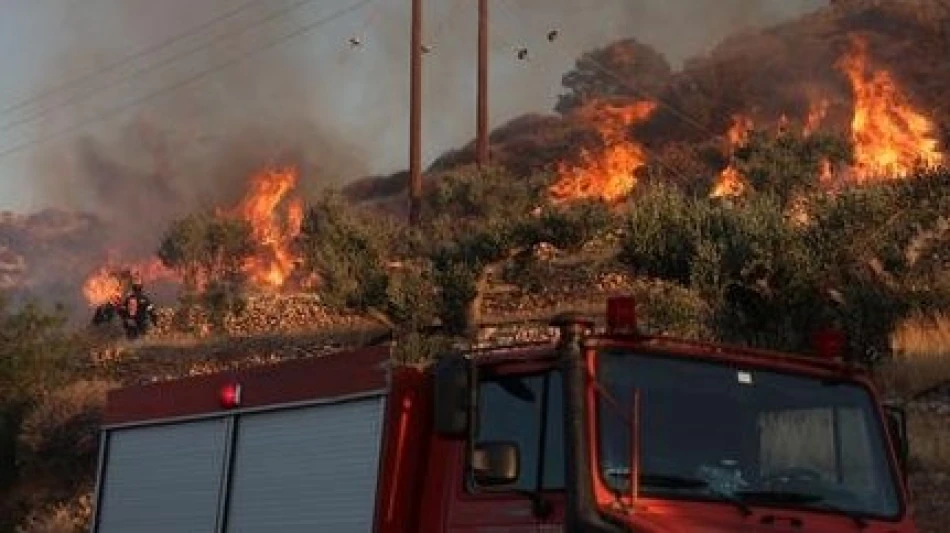
Devastating Wildfires Ravage Greece's Forests: A Urgent Environmental Crisis
Greece Battles Devastating Wildfire Crisis as Climate Change Intensifies Mediterranean Fire Season
Greece is confronting a multi-front wildfire emergency that has forced mass evacuations, destroyed homes and livestock farms, and hospitalized firefighters across several regions. The crisis, spanning areas north of Athens, the islands of Evia, Kythira, and Crete, plus the Peloponnese peninsula, underscores how Mediterranean countries are increasingly vulnerable to extreme fire seasons driven by rising temperatures and prolonged drought conditions.
Scale of Destruction Across Multiple Regions
Emergency services are deploying aircraft and helicopters in continuous operations to combat the widespread blazes. The meteorological authority confirmed on Sunday that several homes have been destroyed or damaged by fires north of Athens since Saturday, though authorities report no active fire fronts remain in that area—only scattered pockets of smoldering embers that occasionally reignite.
The situation on Evia island remains particularly dangerous, with entire villages evacuated and livestock farms destroyed. Six firefighters have been hospitalized with injuries, highlighting the personal cost of battling these intense blazes.
Island Communities Face Evacuation Crisis
On Kythira island, fires have spiraled completely out of control, forcing authorities to evacuate 139 residents. The rapid spread demonstrates how island communities face unique vulnerabilities during wildfire emergencies, with limited escape routes and firefighting resources.
Crete's coastal city of Chania has seen homes, a church, and vehicles consumed by flames, though authorities report the fire there is now partially contained. This partial success offers hope that coordinated firefighting efforts can make progress despite challenging conditions.
Weather Conditions Hampering Response Efforts
In the mountainous region near Kyparissia on the Peloponnese peninsula, shifting winds are significantly impeding firefighting operations, according to Greek media reports. These changing wind patterns represent one of the most unpredictable elements firefighters face, capable of rapidly redirecting fires toward new areas or reigniting supposedly controlled blazes.
Greece's Growing Fire Vulnerability
This crisis reflects a broader pattern affecting Mediterranean Europe. Greece has experienced increasingly severe fire seasons in recent years, with 2021 seeing some of the worst blazes in decades. The country's combination of mountainous terrain, dense vegetation, and hot, dry summers creates ideal conditions for rapid fire spread.
Unlike northern European countries that have invested heavily in fire prevention infrastructure, Mediterranean nations often struggle with the resources needed to combat fires across vast, difficult terrain. The reliance on aerial firefighting—while effective—is expensive and weather-dependent.
Economic and Environmental Impact
Beyond immediate safety concerns, these fires threaten Greece's tourism industry, which depends heavily on its islands and coastal regions during peak summer season. The destruction of agricultural areas, particularly livestock farms, will have lasting economic consequences for rural communities.
The environmental cost extends beyond immediate burn areas. Mediterranean ecosystems, while adapted to periodic fires, face unprecedented pressure from the frequency and intensity of modern blazes, potentially altering landscapes permanently.
Authorities remain on maximum alert nationwide as meteorological experts warn of continued high fire risk. This sustained threat level indicates that Greece's fire season may be far from over, requiring continued vigilance and resource allocation for weeks or months ahead.
Most Viewed News

 Layla Al Mansoori
Layla Al Mansoori






